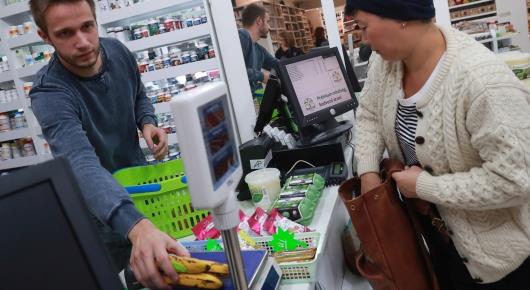Threats to bananas take centre stage at FAO, partner workshop in Istanbul

Bananas – they’re the most exported fruit in the world, and they’re almost everyone’s darling.
But not only humans are fond of them. Plant pests and diseases love bananas, too – especially the soil-borne fungus causing the Fusarium wilt disease, which poses a great threat to bananas worldwide. About half of the world’s bananas are in the Cavendish type, the popular variety among the most susceptible and vulnerable to the disease.
Today, at the ProMusa International Banana Symposium taking place at the International Horticulture Congress in Istanbul through 16 August, a workshop aims to ramp up global discourse on the disease.
The workshop is organized as part of the Global Programme on the Banana Fusarium Wilt Disease by FAO and its partners Bioversity International, International Institute of Agriculture and World Banana Forum.
Today, experts will discuss and finalize two guidance documents – a set of recommendations for travelers and a policy guide – to prevent the spread of tropical race 4 (TR4) of the fungus Fusarium oxysporum f.sp. cubense, which especially affects bananas in Asia but is of global concern.
“No effective eradication solutions have been found so far against this aggressive disease, so preventing local and international spread and rapid containment is the most effective approach to minimize its global impact,” said Fazil Dusunceli, an FAO agricultural officer and plant disease specialist.
The fungus spreads through infected plant material and infested soil particles attached to vehicles and farm equipment. Irrigation, drainage water and floods play critical roles, too. But, as Dusunceli highlighted in his presentation, the disease is made a “real threat” by systematic weaknesses such as limited capacities to implement phytosanitary regulations, lack of awareness among banana farmers and workers, and the absence of effective biosecurity measures at farm level.
The Global Progamme, a multidisciplinary partnership, aims to strengthen national capacities in implementing the necessary phytosanitary practices for prevention and containment in countries not yet invaded by the disease and for management in countries where the disease already affects production severely. To achieve this, the USD 98 million programme aims to strengthen international collaboration and bolster public-private partnerships.
“For the long term, we need to develop new, resistant varieties which are appropriate for the value chain,” Dusunceli added. “That requires a dedicated and collaborative effort. And, at the same time, banana production should become more resilient by promoting more diverse and multi-crop-based systems.”
The programme promotes communication and advocacy globally and contributes to raising awareness of the disease, particularly in Asia, Africa, Latin America, the Caribbean, and the Near East.
TR4 poses a serious threat to the production and trade of bananas, with potential consequences for markets and for those depending on this popular crop as a source of income or staple in their diet.
15 August 2018, Istanbul, Turkey
